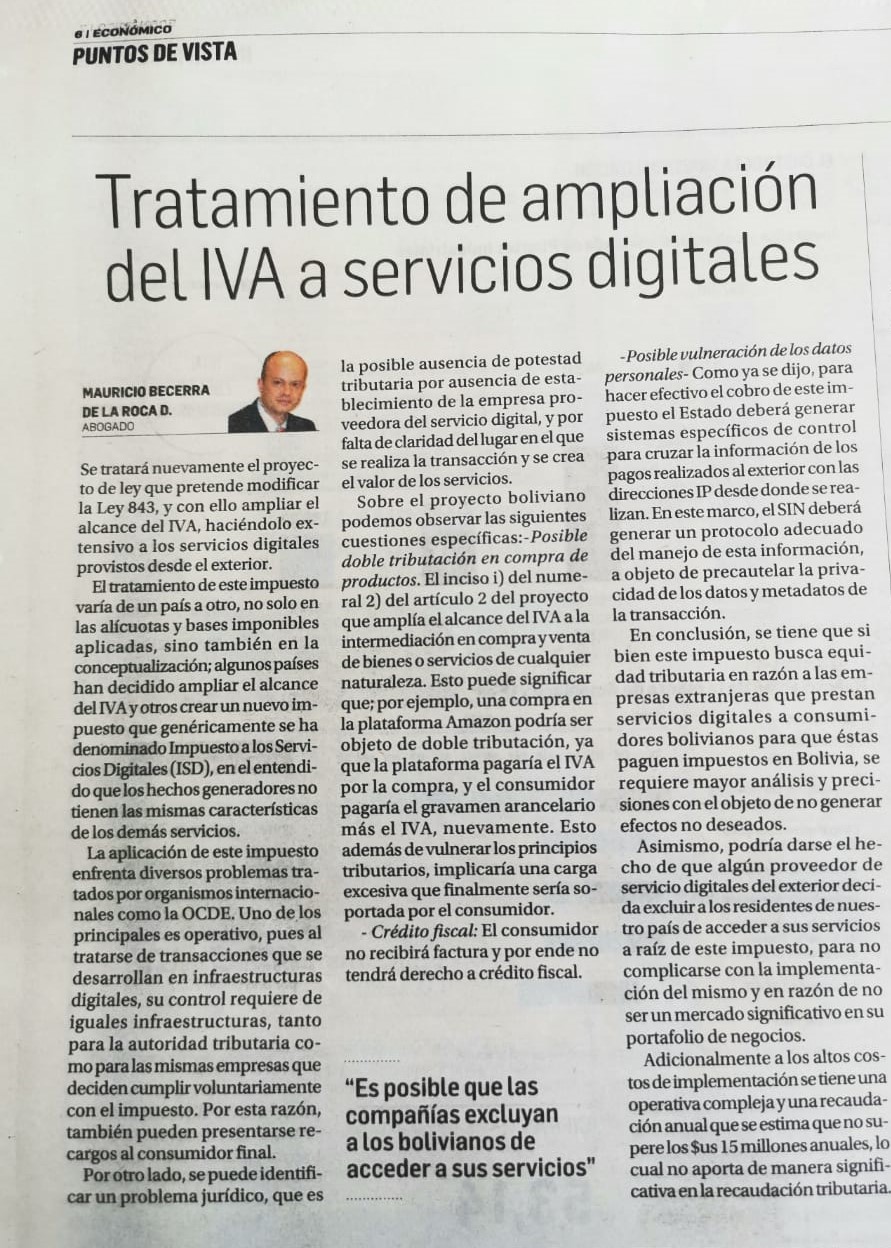
Article published in El Deber on june 12th. 2021
Mauricio Becerra de la Roca Donoso – Attorney LLM
It was recently reported that the proposed bill that seeks to amend Law 843 will be discussed again in the Legislative Assembly, and thereby expand the scope of VAT, extending it to digital services provided from abroad.
The treatment of this tax in the jurisdictions that apply it varies from one country to another, not only in the rates and tax bases applied, but also in its conceptualization; Some countries have decided to expand the scope of VAT and others to create a new tax that has been generically called Tax on Digital Services (ISD), on the understanding that the generating events do not have the same characteristics as the other services.
The application of this tax faces various problems that are being dealt with by international organizations such as the OECD. One of the main ones is clearly operational, because as they are transactions that take place in digital infrastructures, their control requires the same infrastructures, both for the tax authority and for the same companies that decide to voluntarily comply with the tax, for this reason they can also to present surcharges to the final consumer.
On the other hand, a legal problem can be identified, which is the possible absence of tax authority due to the absence of establishment of the company providing the digital service, and due to lack of clarity of the place where the transaction is carried out and the value is created. of the services.
About the Bolivian project we can observe the following specific questions:
- Possible double taxation when purchasing products; Subsection i) of numeral 2) of article 2 of the Bill is observed, which extends the scope of VAT to intermediation in the purchase and sale of goods or services of any nature. This may mean that, for example, a purchase on the Amazon platform could be subject to double taxation, since the platform would pay VAT for the intermediation in the purchase, and the consumer to receive his product would pay the customs duty plus VAT, again. This, in addition to violating tax principles, would imply an excessive burden that would ultimately be borne by the consumer.
- Tax credit: The consumer will not receive an invoice and therefore will not be entitled to a tax credit on those purchases.
- Possible violation of personal data; As has already been said before, to make the collection of this tax effective, the State must generate specific control systems to match the information on payments made abroad with the IP addresses from where they are made. In this framework, the SIN must generate an adequate protocol for the handling of this information, in order to safeguard the privacy of the data and metadata that are generated at the time of carrying out a transaction.
In conclusion, it is necessary that although this tax seeks tax equity based on foreign companies that provide digital services to Bolivian consumers so that they pay taxes in Bolivia, further analysis and details are required in order not to generate unwanted effects. V.g. It could be that some foreign digital service provider decides to exclude residents of our country from accessing their services as a result of this tax, so as not to complicate its implementation and because it is not a significant market. In addition to the high implementation costs, there is a complex operation and an annual collection that is estimated to not exceed US $ 15 million per year, which does not contribute significantly to tax collection.